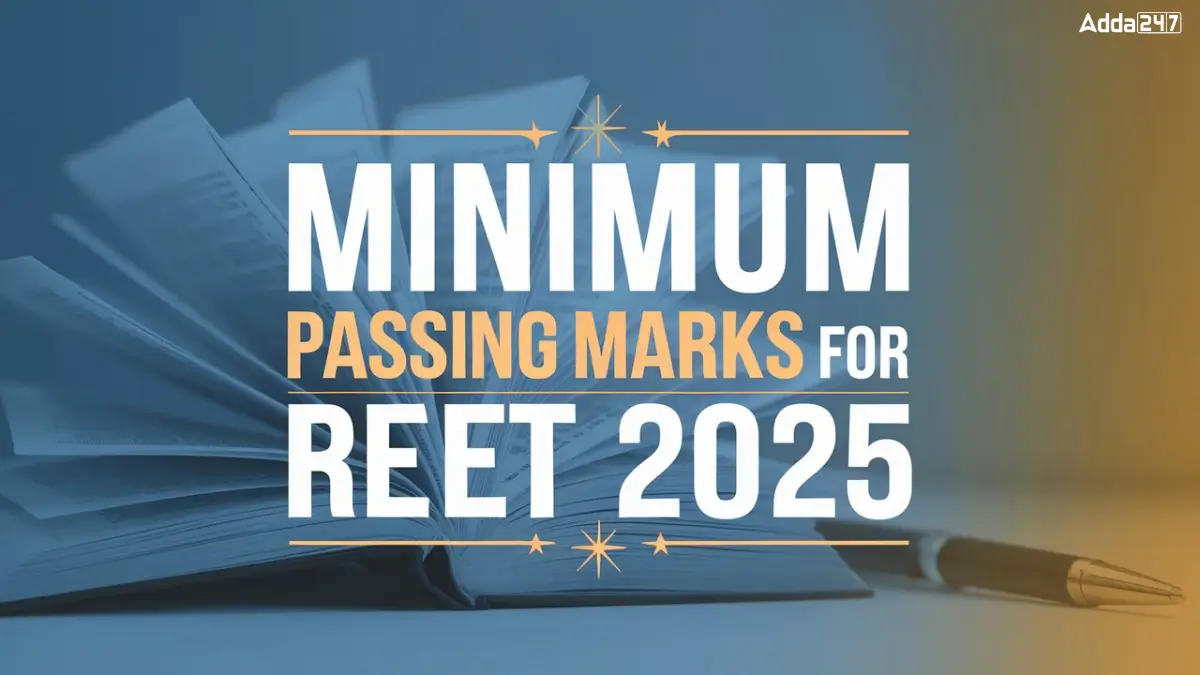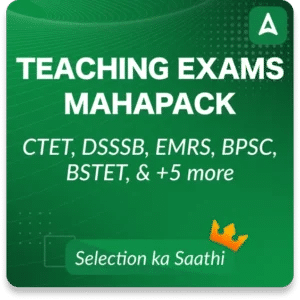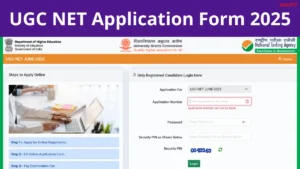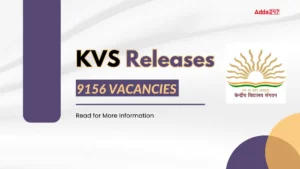Table of Contents
The Board of Secondary Education, Rajasthan (BSER) is conducting the Rajasthan Eligibility Examination for Teachers (REET) exams at the month-end of February 2025. Candidates preparing for the exam must ensure that they are well versed with the minimum target they must be hitting to clear the exam for any post candidates applied. By knowing the minimum passing marks for REET 2025, candidates understand that what should be the intensity of their preparation to clear the exam without any problem. This article will discuss the significance of knowing the passing marks and how to direct their preparations.
Passing Marks for REET 2025
Candidates appearing for REET 2025 must secure the minimum qualifying percentage set by the Rajasthan government. The category-wise qualifying marks ensure fairness in the selection process while maintaining the required teaching standards.
The minimum passing marks for General category candidates are 60%, whereas reserved categories such as SC, ST, OBC, MBC, and EWS candidates have 55% as the qualifying percentage. However, for ST candidates from TSP areas, the minimum required marks are 36%. Additionally, widows, ex-servicemen, and specially-abled candidates have further relaxations in qualifying marks.
| Passing Marks For REET 2025 | ||
| Category | Non-TSP Area (%) | TSP Area (%) |
| General (Unreserved) | 60% | 60% |
| Scheduled Tribe (ST) | 55% | 36% |
| Scheduled Caste (SC), OBC, MBC, EWS | 55% | |
| Widow & Divorced Women, Ex-Servicemen | 50% | |
| Persons with Disabilities (PwD) | 40% | |
| Sahariya Tribe | 36% | |
REET Exam Pattern and Scoring System
The REET 2025 exam follows a structured pattern for both Level 1 (Primary Teacher) and Level 2 (Upper Primary Teacher). The exam comprises 150 multiple-choice questions (MCQs), each carrying one mark, making a total of 150 marks. Candidates must complete the test within 2 hours and 30 minutes. There is no negative marking, but a new rule requires candidates to select one of five answer choices; failure to do so may lead to a penalty. The exam assesses candidates’ teaching aptitude, subject knowledge, and reasoning ability, ensuring they possess the skills required for effective classroom instruction.
| Exam Level | Subjects Covered | Total Questions | Marks | Duration | Negative Marking |
| Level 1 (Class 1-5) | Child Development & Pedagogy, Language I, Language II, Mathematics, Environmental Studies | 150 | 150 | 2.5 Hours | No Negative Marking |
| Level 2 (Class 6-8) | Child Development & Pedagogy, Language I, Language II, Mathematics & Science (or Social Science) | 150 | 150 | 2.5 Hours |
Importance of Meeting the Minimum Passing Marks for REET 2025
Meeting the minimum passing marks in REET 2025 is crucial for candidates to qualify for the Grade 3 Teacher Recruitment process in Rajasthan. However, achieving these marks alone does not guarantee selection. The REET score is normalized if the exam is conducted in multiple shifts, ensuring fairness across different difficulty levels. After clearing the qualifying marks, candidates are ranked based on their performance in the exam.
Those securing higher marks have a better chance of selection, as final recruitment depends on merit, document verification, and reservation policies. Candidates must aim well above the cutoff to secure a strong position in the REET merit list, as recruitment is highly competitive.
| Related Articles | |
| REET Eligibility Criteria | REET Syllabus |
| REET Previous Year Question Paper | REET Selection Process |
| REET Validity | REET Cut Off Marks |
| REET Admit Card 2025 | |




 UGC NET Application Form 2025 Starts for...
UGC NET Application Form 2025 Starts for...
 Can DELED Qualified Candidates Apply for...
Can DELED Qualified Candidates Apply for...
 KVS Recruitment 2025 Out, Check Kendriya...
KVS Recruitment 2025 Out, Check Kendriya...














